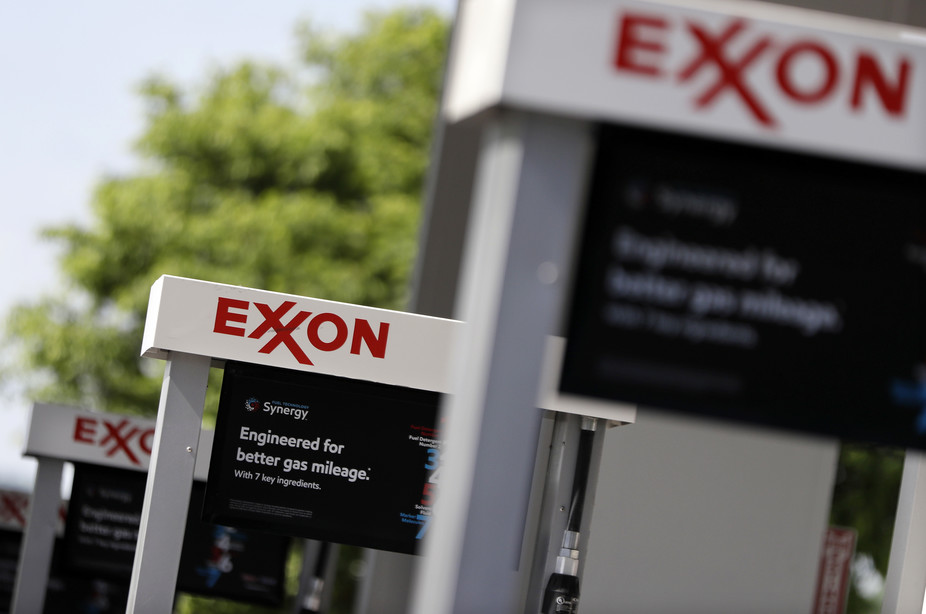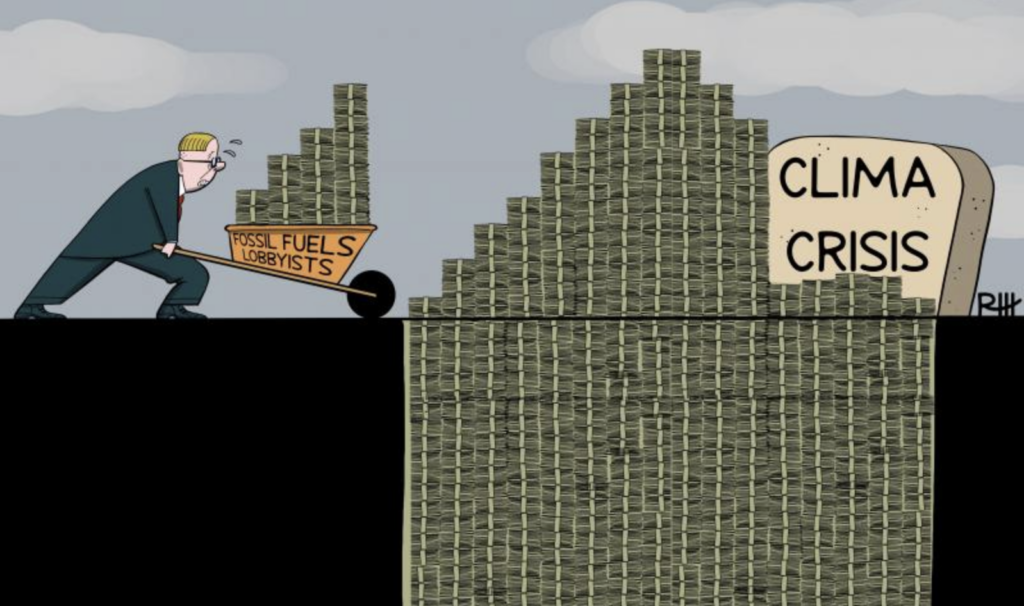By Katharine Hayhoe, Texas Tech University
ExxonMobil’s deliberate attempts to sow doubt on the reality and urgency of climate change and their donations to front groups to disseminate false information about climate change have been public knowledge for a long time, now.
Investigative reports in 2015 revealed that Exxon had its own scientists doing its own climate modeling as far back as the 1970s: science and modeling that was not only accurate, but that was being used to plan for the company’s future.
Now, a peer-reviewed study published August 23 has confirmed that what Exxon was saying internally about climate change was quantitatively very different from their public statements. Specifically, researchers Geoffrey Supran and Naomi Oreskes found that at least 80 percent of the internal documents and peer-reviewed publications they studied from between 1977 and 2014 were consistent with the state of the science — acknowledging that climate change is real and caused by humans, and identifying “reasonable uncertainties” that any climate scientist would agree with at the time. Yet over 80 percent of Exxon’s editorial-style paid advertisements over the same period specifically focused on uncertainty and doubt, the study found.
The stark contrast between internally discussing cutting-edge climate research while externally conducting a climate disinformation campaign is enough to blow many minds. What was going on at Exxon?
I have a unique perspective — because I was there.
From 1995 to 1997, Exxon provided partial financial support for my master’s thesis, which focused on methane chemistry and emissions. I spent several weeks in 1996 as an intern at their Annandale research lab in New Jersey and years working on the collaborative research that resulted in three of the published studies referenced in Supran and Oreskes’ new analysis.
Climate research at Exxon
A scientist is a scientist no matter where we work, and my Exxon colleagues were no exception. Thoughtful, cautious and in full agreement with the scientific consensus on climate — these are characteristics any scientist would be proud to own.
Did Exxon have an agenda for our research? Of course — it’s not a charity. Their research and development was targeted, and in my case, it was targeted at something that would raise no red flags in climate policy circles: quantifying the benefits of methane reduction.
Methane is a waste product released by coal mining and natural gas leaks; wastewater treatment plants; farting and belching cows, sheep, goats and anything else that chews its cud; decaying organic trash in garbage dumps; giant termite mounds in Africa; and even, in vanishingly small amounts, our own lactose-intolerant family members.
On a mass basis, methane absorbs about 35 times more of the Earth’s heat than carbon dioxide. Methane has a much shorter lifetime than carbon dioxide gas, and we produce a lot less of it, so there’s no escaping the fact that carbon has to go. But if our concern is how fast the Earth is warming, we can get a big bang for our buck by cutting methane emissions as soon as possible, while continuing to wean ourselves off carbon-based fuels long-term.
For the gas and oil industry, reducing methane emissions means saving energy. So it’s no surprise that, during my research, I didn’t experience any heavy-handed guidance or interference with my results. No one asked to review my code or suggested ways to “adjust” my findings. The only requirement was that a journal article with an Exxon co-author pass an internal review before it could be submitted for peer review, a policy similar to that of many federal agencies.
Did I know what else they were up to at the time? I couldn’t even imagine it.
Fresh out of Canada, I was unaware that there were people who didn’t accept climate science — so unaware, in fact, that it was nearly half a year before I realized I’d married one — let alone that Exxon was funding a disinformation campaign at the very same time it was supporting my research on the most expedient ways to reduce the impact of humans on climate.
Yet Exxon’s choices have contributed directly to the situation we are in today, a situation that in many ways seems unreal: one where many elected representatives oppose climate action, while China leads the U.S. in wind energy, solar power, economic investment in clean energy and even the existence of a national cap and trade policy similar to the ill-fated Waxman-Markey bill of 2009.
Personal decisions
This latest study underscores why many are calling on Exxon to be held responsible for knowingly misleading the public on such a critical issue. For scientists and academics, though, it may fuel another, different, yet similarly moral debate.
Are we willing to accept financial support that is offered as a sop to the public conscience?
The concept of tendering literal payment for sin is nothing new. From the indulgences of the Middle Ages to the criticisms some have leveled at carbon offsets today, we humans have always sought to stave off the consequences of our actions and ease our conscience with good deeds, particularly of the financial kind. Today, many industry groups follow this familiar path: supporting science denial with the left hand, while giving to cutting-edge research and science with the right.
The Global Climate and Energy Project at Stanford University conducts fundamental research on efficient and clean energy technologies — with Exxon as a founding sponsor. Philanthropist and political donor David Koch gave an unprecedented US$35 million to the Smithsonian National Museum of Natural History in 2015, after which three dozen scientists called on the museum to cut ties with him for funding lobbying groups that “misrepresent” climate science. Shell underwrote the London Science Museum’s “Atmosphere” program and then used its leverage to muddy the waters on what scientists know about climate.
It may be easy to point a finger at others, but when it happens to us, the choice might not seem so clear. Which is most important — the benefit of the research and education, or the rejection of tainted funds?
The appropriate response to morally tainted offerings is an ancient question. In the book of Corinthians, the apostle Paul responds to a query on what to do with food that has been sacrificed to idols — eat or reject?
His response illustrates the complexity of this issue. Food is food, he says — and by the same token, we might say money is money today. Both food and money, though, can imply alliance or acceptance. And if it affects others, a more discerning response may be needed.
What are we as academics to do? In this open and transparent new publishing world of ours, declaration of financial supporters is both important and necessary. Some would argue that a funder, however loose and distant the ties, casts a shadow over the resulting research. Others would respond that the funds can be used for good. Which carries the greatest weight?
After two decades in the trenches of climate science, I’m no longer the ingenue I was. I’m all too aware, now, of those who dismiss climate science as a “liberal hoax.” Every day, they attack me on Facebook, vilify me on Twitter and even send the occasional hand-typed letter — which begs appreciation of the artistry, if not the contents. So now, if Exxon came calling, what would I do?
There’s no one right answer to this question. Speaking for myself, I might ask them to give those funds to politicians who endorse sensible climate policy — and cut their funding to those who don’t. Or I admire one colleague’s practical response: to use a Koch-funded honorarium to purchase a lifetime membership in the Sierra Club.
Despite the fact that there’s no easy answer, it’s a question that’s being posed to more and more of us every day, and we cannot straddle the fence any longer. As academics and scientists, we have some tough choices to make; and only by recognizing the broader implications of these choices are we able to make these decisions with our eyes wide open, rather than half shut.
By Katharine Hayhoe, Professor and Director, Climate Science Center, Texas Tech University
This article was originally published on The Conversation. Read the original article.
Image credit: Exxon funded climate scientists while the bulk of its public-facing advertorials argued the science and cause of climate change was uncertain. AP Photo/Mark Humphrey
Subscribe to our newsletter
Stay up to date with DeSmog news and alerts







